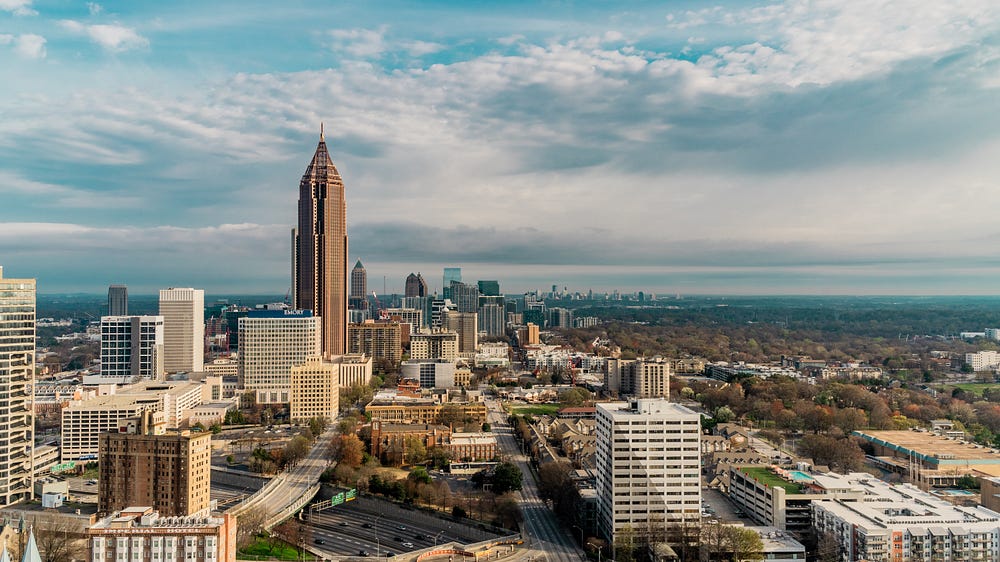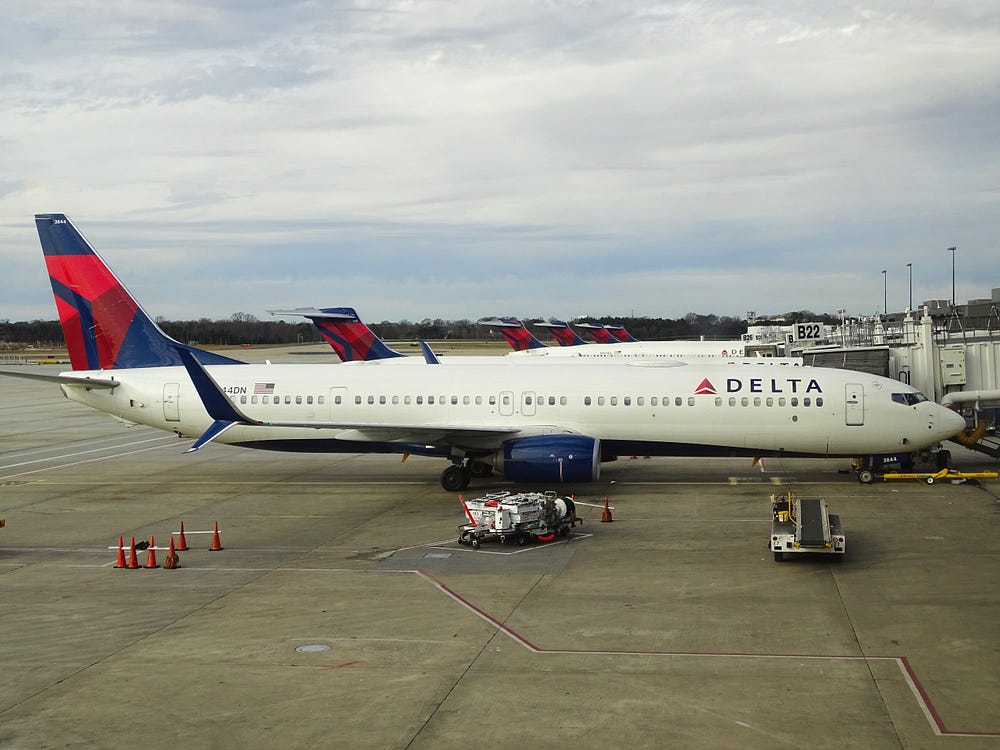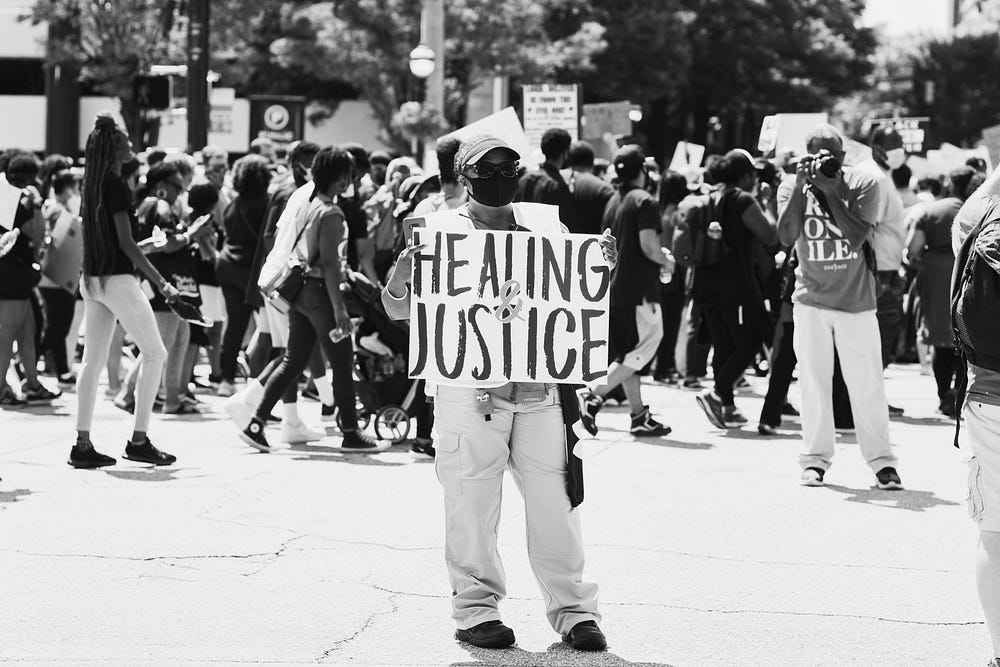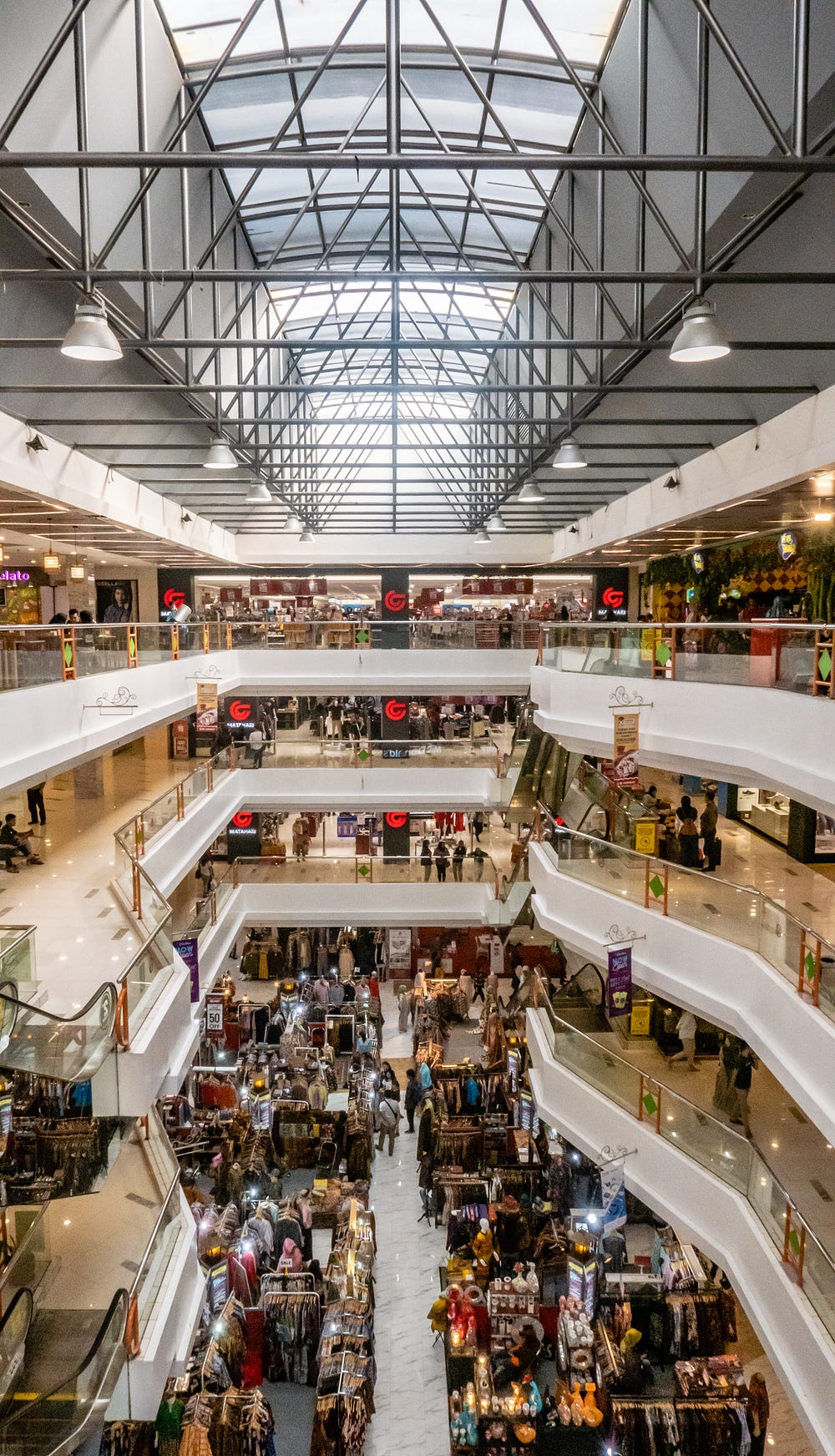Mayday, Mayday, The Golden Fleece Has Been Hacked
Can Kasim Reed Restore Order, Save the Airport, and Keep Buckhead Happy?

By far, Atlanta is the most prosperous city in Georgia and arguably in the top five municipal economies in the southeastern region. Her strength lies in the two cities within a town, Hartsfield-Jackson International Airport and the Buckhead commercial and residential district. Tax revenues from Hartsfield-Jackson and Buckhead are the driving force behind Atlanta’s prosperity.
As Atlanta moves into the third decade of the 20th century, it is doubtful that she can keep Hartsfield-Jackson and Buckhead under her control. For several years, the Republican-led Georgia legislature has toyed with the notion of taking control of the airport from the City of Atlanta. Legislators cite past incidences of corruption in the awarding of contracts in construction and vending operations.
In 1952, Buckhead was annexed into the City of Atlanta under the leadership of then-Mayor William Hartsfield to maintain majority White control in the city as Black Atlantans were beginning to flex their political muscle in the affairs of city government.
Hartsfield’s scheme worked. The influx of Buckhead residents allowed Whites in Atlanta to maintain political power until October 1973, when Maynard H. Jackson defeated the incumbent mayor and Buckhead resident, Sam Massell, Jr.
While Massell is Jewish, he is often considered Atlanta’s last White mayor. His election in October 1969 was a forerunner for Atlanta, proving that she could heal past racial hurts. Massell’s election came almost eleven years to the day that a group, self-named the “Confederate Underground,” placed 50 sticks of dynamite at The Hebrew Benevolent Congregation Temple on Peachtree Street. His election proved once again that “Atlanta is a city too busy to hate.”
Four years later, Atlanta had a reckoning with its past from the days of enslavement. Maynard Jackson, stirred by the assassination of Atlanta native Dr. Martin Luther King, Jr., entered the 1973 mayoral race. Hartsfield’s nightmare had become a reality. Blacks outnumbered Whites in the city, and Jackson, a grandson of Georgia voters rights advocate John Wesley Dobbs, became Atlanta’s first Black mayor. Massell retreated to Buckhead, where he has remained the loyal opposition to this very day.

Jackson’s election brought a sense of equity to the distribution of political largess. For example, during an airport expansion, he pledged to close the runway at Hartsfield Airport if White contractors did not share parts of their contract with Black-owned contractors. It was a very controversial move and so incensed the Atlanta White business class that when Jackson, a lawyer by trade, ended his term, none of the large White law firms in the city would offer him a job.

Jackson’s foresight created several Black millionaires who were finally able to wrap themselves in the golden fleece that had been Atlanta since the days when cotton was king. Soon the power dynamics shifted. He or she, who controlled the mayor’s office in Atlanta, maintained the purse-strings over hundreds of million of dollars flowing through the airport. In a reversal, White contractors now must seek out Black contractors to receive a piece of the action.
When peeling back the onion, it is clear the brunt of Atlanta’s problems with corruption at the airport had its genesis when White contractors had to come to Black contractors and public officials for work. Rather than coming with a streamlined budget and better artistry, they came offering bags of cash to get a piece of the action. There has never been a corruption case involving Atlanta governmental officials when the culprits were two Blacks. They all have involved a White businessman and a Black official.
So, in a nutshell, this is the problem frustrating White Republicans who control everything in Georgia except the goose that lays the golden eggs.
Sixty-nine years later, Buckhead’s business leaders have commenced efforts for de-annexation. If allowed to do so, they will take 20 percent of the city’s population with them along with 40 percent of its residential tax base.
While Atlanta will increase its Black majority and ensure that the Black community will continue to select the mayor, she will be a much poorer city, with fewer resources, a lower bond rating, and all the problems currently confronting her.
Two months into her administration, Atlanta Mayor Keshia Lance Bottoms confronted a ransomware attack that took over the city’s computers. The hacks affected the courts and utility services. Lance Bottoms refused to pay the ransom. Instead, she abandoned the old system and undertook a grueling two-month period to develop another computer program to handle city business.
During shelter-in-place orders in the early weeks of the COVID-19 pandemic, Rashard Brown was shot and killed by an Atlanta Police officer. Lance Bottoms took swift action. She accepted the resignation of the police chief and fired the officer involved in the shooting. Unfortunately, this caused a loss of morale in the department. Multiple officers quit the force, and an already understaffed department faced a significant shortage of man and woman power.

Soon, Atlanta was hacked again. Gunfire seemed to erupt out of nowhere. There are more guns in the streets and cars than ever before. In many instances, the bad guys with guns have more significant and more powerful toys than the good people with guns. Bullets are flying and darting everywhere. Atlanta feels less safe than she was before the pandemic.
Let’s face it, at one time, Buckhead was the playground for the wealthy in the city and her more affluent visitors. Blacks did not go to Buckhead unless they had some specific business to conduct. But now, the Buckhead bars, restaurants, malls, and clubs are attractive to people who do not live in that part of town, and perhaps, that do not live in Georgia.
Tour buses leave Harlem for Atlanta every day and drop off their passengers at Lennox Square Mall. Then make the return trip around midnight. Some visitors will stay over and catch the bus back to New York in a couple of days. A person can get into a bit of mischief and board the bus back to New York at the end of the day. For all intents and purposes, they have vanished from the threat of apprehension.
The crime problems faced by Buckhead and let’s add Cascade Heights to the mix, are complex. Both are rooted in the luxury of Buckhead and the abject neediness in Cascade Heights. Here again, Atlanta is two cities within one town.

Buckhead has Lennox Square Mall, which boasts of the finer shops and upscale residential accommodations on a par with New York’s Madison Avenue. Cascade Heights has Greenbriar Mall, where you can’t find one national retailer or restaurant that anchors a store in the mall.

Where else will Atlantans go shopping and eat, if not Buckhead? So why would a tour bus drop passengers from New York off at Greenbriar Mall?
But if you build what is in Buckhead in Cascade Heights, the people will come. They will flock from all the country to party and parley in luxury with their people, lessening the burden on Lenox Square Mall.
Creating an upscale Cascade Heights is no easy fix.
Perhaps, this explains why Lance Bottoms decided not to seek a second term. There are no easy fixes. Buckhead proposes to create a new city with its own police chief. Presumably, someone who will be tough on crime.
Into this mix comes the announcement that former Atlanta mayor Kasim Reed is seeking his old job back.
Atlanta has three significant problems that the next mayor must solve:
One, Crime. It is the number one problem confronting the stability and continued prosperity of Atlanta. The next mayor of Atlanta should be a crime fighter, one who will stand up to the bullies and chase them out of town.
But you can’t solve crime in Atlanta without tackling the disparity in the wealth gap from Buckhead to Cascade Heights. There are far too many people in downtown Atlanta living under bridges and in the front door of the National Headquarters of the Southern Christian Leadership Conference.
This sad state of homelessness in Atlanta does not suggest that homeless people are the source of Atlanta’s crime rate spike. However, the threat of becoming homeless motives marginalized people to resort to crime to support themselves.

While Buckhead leaders bemoan the fact that crime and infrastructure needs are not met head on by Atlanta officials, they ignore the economic disparity they enjoy over southwest Atlanta. They should try living their best lives in southwest Atlanta like all Black mayors have done from Jackson to Lance Bottoms. Each of whom had to deny constituent services in their own community to cater to the needs of the rich and powerful in Buckhead.
Two, maintaining control over Hartsfield-Jackson International Airport is of paramount importance. If you take the airport away from Atlanta, you can kiss Black economic participation goodbye. The only reason Republicans want it is to direct patronage to their friends and away from the Black community.
Three, it is critically important to keep Buckhead within the city limits of Atlanta. Atlanta is too big to fail, and de-annexation will spoil the golden fleece.

Reed essentially had two good terms as mayor, with two notable exceptions. One, he could be a bit testy, and two, his administration was plagued with corrupt administrators who were dealing behind the boss’s back to line their pockets.
Reed recently apologized to those he offended in the past because of his abrasive behavior. In addition, he pledges to do a better job of screening applicants for positions at city hall. Those are the two negatives that Reed brings to his application to serve another term as Atlanta mayor.
On the plus side, Reed has municipal executive experience.
He understands bonds and bond ratings. In his previous tenure, the city prospered. He spent a great deal of money on gifts and travel, but the town grew. In addition, the crime rate was down during his years as mayor. There is no doubt that Reed has the temperament to stand up to the outlaws who have descended on Atlanta.
In the past, Reed worked well with the Republican governor and state lawmakers. Should he receive the nod from voters in October, he will need those skills to protect the airport and convince Buckhead that he can stem the tide of crime and address some of the infrastructure needs that have gone unaddressed.
There are other good candidates in the race.

City Council President Felicia Moore brings much empathy to the fray. She has done a superb job as council president.
Councilor Andre Dickens is young, pragmatic, and a future leader in the metro region. He has a strong record of developing small businesses in Atlanta’s more impoverished neighborhoods. Spurring economic growth in the small business sector is a must if Atlanta is serious about shortening the wealth gap between Buckhead and West End. But, of course, you can pick any community south of Buckhead.
Another member of the city council running for mayor is Antonio Brown, Atlanta’s first openly gay councilor. He brings fresh ideas to the table and a federal indictment that will be ripe for trial around the time Brown takes office should he win the November 2 election.
Walter Reeves is a newcomer to politics. He has practically a nonexistent media footprint. As a result, there is not much known about his ability to raise sufficient money to make a serious run this campaign season.
Another newcomer to politics, but not a stranger to Atlanta city hall, is Sharon Gay, a lawyer with impeccable legal credentials. She brings a wealth of knowledge to the contest in land use, zoning, and financial incentives to encourage commercial development.
In addition, she has money, access to cash, and presumably a helping hand from Steven J. Labovitz, former finance chairman for Bill Campbell’s mayoral campaigns. Gay is the sleeper in the race. While she lacks name recognition, She can raise the money to make her name a household word.
Gay has added Cedric Alexander, former Public Safety Director of Dekalb County, Georgia, and a frequent public safety commentator on national news programming, as her campaign public safety advisor. During a recent news conference to announce Alexander’s appointment, he made a more articulate case for Gay’s election than the candidate. He has a trusted and known voice to Atlanta voters. Gay does not, but the early addition of Alexander will help to make her known.
Of the six candidates, two are white, Gay and Reeves. A strong showing by either with White voters, coupled with a split of the Black vote, and Atlanta will elect its first White mayor in nearly a half-century. There are young Black progressives who argue on social media for a full-frontal hostile attack targeted at Kasim Reed to defeat him out of the starting block.
Gay seems to be the only candidate who would have the resources to mount such an assault, but she runs the risk that her ties to Labovitz and the Campbell administration will karmically return the blows in kind.
Each announced candidate brings a wealth of knowledge and experience into the contest. In regular pre-pandemic times, Atlanta could not lose with any of the experienced candidates as mayor.
But these are not standard times, and the city is still recovering from the pandemic and a year of street protests. In these times, Atlanta needs a big tine crime Czar, who can tame the maddening gunfighters in the streets and go behind closed doors to keep the state legislature’s hands off of Hartsfield-Jackson and keep Buckhead within the city limits.
Can Kasim Reed win, and if he wins, can he protect the golden fleece and uphold the legacy begun by Maynard Halbrook Jackson?
Harold Michael Harvey is the Living Now 2020 Bronze Medal winner for his memoir Freaknik Lawyer: A Memoir on the Craft of Resistance. He is the author of a book on Negro Leagues Baseball, The Duke of 18th & Vine: Bob Kendrick Pitches Negro Leagues Baseball. He writes feature stories for Black College Nines. Com. Harvey is a member of the Collegiate Baseball Writers Association, HBCU and PRO Sports Media Association, and a member of the Legends Committee for the National College Baseball Hall of Fame. Harvey is an engaging speaker. Contact Harvey at hmharvey@haroldmichaelharvey.com

I am wondering if Atlanta has outgrown itself. Is it to large to manage. And sometimes people will move boundaries so that airports or other business are out of reach of the black community. They want all of the money and contracts for themselves and for them to hire their children. There should be a lot of business in Atlanta to hire their own children. Or will we be soon reading Atlanta the making of a disaster?
Thanks for reading and commenting. We will follow the mayoral race and see what the end shall bring.